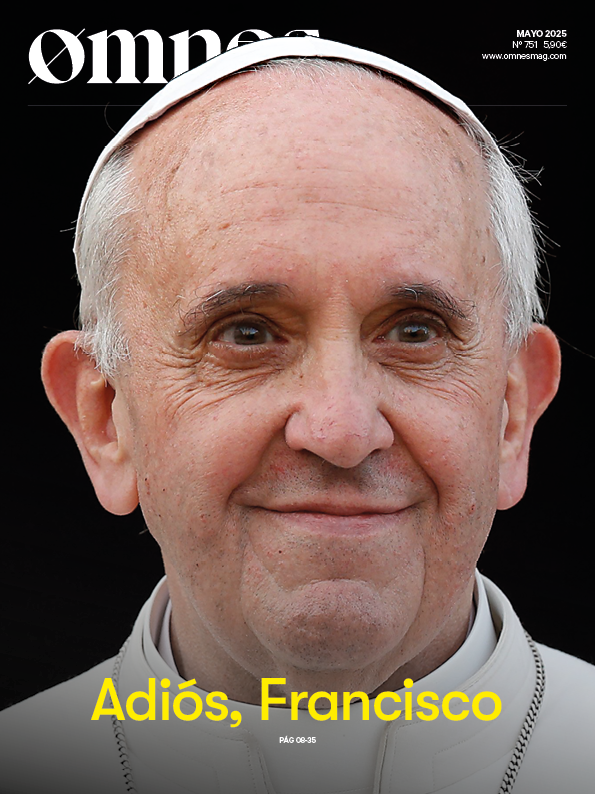We have just celebrated in Pamplona the inauguration of the Ignatian Year that celebrates the fifth centenary of the conversion that led Ignatius -founder of the Society of Jesus- from the agony of his room in Loyola, to see all things new in Christ in the cave of Manresa. This centenary runs from last May 20 (500 years of the wound in Pamplona) until July 31 next year, the feast of the saint.
How can we take advantage of this long year? How can we situate ourselves? Undoubtedly, there will be those who will take the opportunity to learn more about the life of Íñigo and what were those wounded steps that led him from wanting to be a distinguished gentleman to being a poor pilgrim who wanted to serve Christ. Getting to know people is an important step, no doubt, but we run the risk of placing ourselves as mere spectators who feel certain emotions, but, in the end, remain the same: nothing changes. Another possibility is to move from being spectators to being actors: is it possible that what happened to Ignatius could happen to me? Is there something in his path of conversion that invites me to leave some things behind and start walking? Can Jesus finally be the Lord of my life? Will he want it that way?
The path of Ignatius may offer some clues.
–Discover the fullness of your life. It seems simple to be lucid, but it is very easy to deceive oneself. Íñigo knew what he wanted. Perhaps in our time it is not so easy to know what we want, but, in the end, we make our decisions and we become clearer. And although in life we may not do exactly what we dreamed of, certain ideals remain stable: of an affective life, work performance and economic well-being; of taking care of our bodies and enjoying the pleasures within our reach; of solidarity... It will help us to know what our ideals are, but I believe that true lucidity moves on an even deeper plane. I am referring to the load of meaning that we give to these ideals: is what I am looking for what will really fulfill me; is this career or profession what really means my vocation; is prosperity and well-being what makes me go to bed every day with satisfaction and gratitude; is this career or profession what really means my vocation; is prosperity and well-being what makes me go to bed every day with satisfaction and gratitude?
Ignatius arrived at his home in Loyola dying. Little could he have imagined that, through the open crack of his wounds, God would grant him the light to see that he was deluding himself, that the fullness he longed for was not to be found where he believed. That so many things he had fought for were never going to fill him, wounded or healthy. And that another life was possible. It would not be easy, but God is always by the side of those who try.
–Let God act. Íñigo left his house totally determined: what he had been doing before in his life was no longer valid. Everything had to change. And so he left Loyola: whole, without wanting to leave anything to bet; without reserving some safety zones, just in case things went wrong. He opted for the greatest freedom of which he was capable, because isn't the person who is capable of betting everything the freest? He put all his determination and will into it: he ate and dressed like a poor man; he spent long periods of prayer, imposed hard penances on himself, went to confession, lived in houses of charity and only cared about what had to do with God. So, has Ignatius already converted?
Not yet. What was missing? To let go of the reins of his life: to let God be God; to let the initiative of his life not be the religious ideals that hung on his will, but let the initiative be taken by the God of Jesus and only Him. In Manresa, after long months of struggle, his religious ideal failed. He realized that our life and our faith do not depend on us: they depend on the loving and faithful will of God. It is pure grace. Ignatius expressed this rescue in the middle of the night: our Lord had willed to deliver him by His mercy... and so, he started to live at Your waythe way of God.
–Motto: See all things new. For the rest of his life, the Lord always took the initiative in Ignatius. This foundational experience changed his way of understanding God, of understanding himself and of understanding all things.
God had rescued him, because God is pure merciful love for each one of us. Encountering this personal God is the hidden treasure Ignatius felt he had to encourage others to seek. Throughout his life he would not cease in his efforts to help many to encounter the God of Jesus through the Spiritual Exercises.
He found that same face of Christ in the lives of so many poor, sick and excluded people he met on the roads, begging in the streets or prostrate on dirty cots in the poorest hospitals. To them he would dedicate his attention and for them he would risk his health.
Iñigo left Loyola alone, believing that his adventure of faith was something individual. Reached by Christ, he would seek companions, as Jesus himself had done in his public life. Because faith is to be shared. Because love, alone, dies. Because it is God himself who seeks us to be his companions.
Coordinator of the Ignatian Year in Spain







